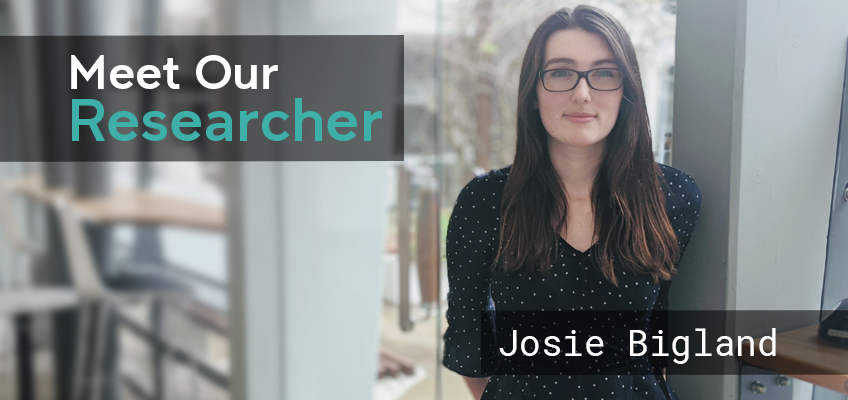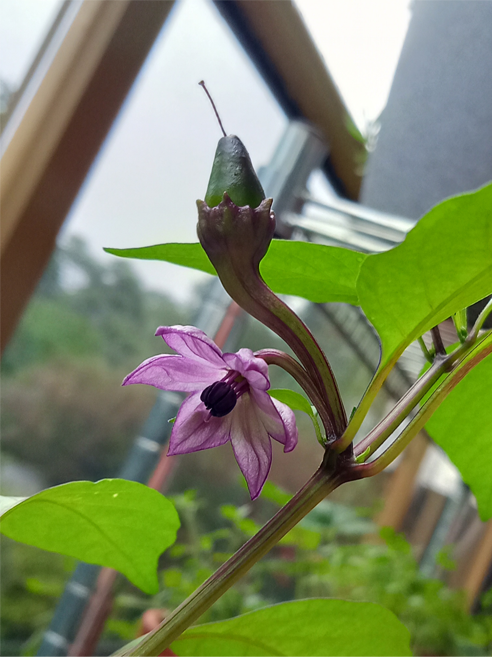20 Jul 2020

Josie Bigland is working toward becoming a Clinical Psychologist, with a personal goal of giving back to the community; specifically, families enduring hardship when it comes to managing the health of a loved one affected by dementia. Her experience with quality control of data across CHeBA’s longitudinal studies has revealed to her the importance of exercising throughout the lifespan to maintain cognitive health.
How did you first get into researching the ageing brain?
As a self-supporting student, I was looking for a research assistant position to get me through university whilst studying a Bachelor of Science majoring in Psychology. Around two years ago, I was made aware of a position at CHeBA involving data entry and maintenance. I applied for that role and have worked with CHeBA ever since. I have always been fascinated by the brain and how brain health influences someone’s quality of life. My work at CHeBA complements what I want to do in the future in a clinical capacity. Not only has it provided me with countless learning opportunities, it has allowed me to work with people who have considerable experience in the field. Their experience and feedback has been invaluable to my development.
Did you experience a ‘defining moment’ which led you to this field?
Yes, absolutely. Multiple loved ones throughout my life have struggled with mental illness or cognitive decline. Through this experience, I recognised that mental health support is essential for individuals suffering from mental illness as well as those who care for them. To me, there is nothing more important than helping people in these situations, which is why I chose to study in this field.

Do you have any personal interests or activities which are protective behaviours against cognitive decline?
Before I started working at CHeBA I was not very physically active. After talking to some of our study participants, I realised the extent to which mobility impairment impacts people’s quality of life. Because of this, I knuckled down and started doing push ups every day, I began going for more bush walks, and I generally try to be more physically active. I have also adopted many other hobbies such as gardening and baking which I’ve been able to involve my family in. I try to maintain a healthy diet and stay socially connected. I also really enjoy playing bass guitar, this sort of complex mental activity is highly protective for brain health. Music is a large part of my life.
What are you currently researching?
In my volunteer time, I have started working on my first review paper looking into how different care options can influence peoples ageing prognosis. For example, do different types of care, whether it is living in a nursing home or living within a family home with paid weekly assistance, influence someone’s disease progression. Although this review is only at a very early stage of development, I am hoping it will help me better understand the types of ageing related challenges our research participants and their families are required to cope with. At CHeBA, most of my work involves completing data entry, data cleaning, and general quality control. I have also co-written quality control procedures for files and management systems which are utilised by CHeBA staff. I believe great research can only be done with clean data, so I find this work rewarding as it contributes to research which can improve people’s quality of life.
Why is your research important?
It is important for people to understand factors affecting cognitive decline and healthy ageing for self-preservation. By making alterations to lifestyle, individuals can make healthier decisions throughout the lifespan to protect cognitive health longevity, independence, and attain a high quality of living for as long as possible. I feel this is especially important for future generations.
Talking with and listening to the stories of older people is important for understanding the experience of cognitive decline. Our study participants are incredible, generous people who are willing to volunteer their time and tell us about their life experiences.
Incidentally, it was through chatting to study participants that I was encouraged to taken up gardening! Seeing how much they do makes me feel that our society greatly undervalues the elderly population. They frequently care for grandchildren allowing parents to return to work; with the parents having the benefit of knowing their children are spending quality time with their grandparents. Generally, elderly individuals often do a lot of volunteer work within the community. These community contributions are a crucial part of society. They do so much, so it makes me sad when I hear them described as ‘a burden on the medical system’. This positive community involvement is highly applicable to our centenarian cohort; witnessing how long people are willing and capable of contributing to society is inspiring.
What do you love about working for CHeBA and what you are doing?
Everyone is lovely. Honestly, I feel that we have a fantastic work culture across CHeBA’s teams and studies. Although the work can be challenging, which is a good thing, everyone is very kind, intelligent, and witty which makes the workplace very enjoyable. I also love that I am doing a job that is potentially helping people and that I am contributing to research which is fundamentally a fantastic cause.
What is the ultimate hope you have for your research?
My ultimate goal is to conduct research that genuinely helps people; regardless of whether this is related to helping individuals and families make informed decisions regarding aged care, or educating younger people about lifestyle related changes which facilitate long-term cognitive health. I want to be involved in reshaping the negative stereotypes our society has toward older people, to highlight their invaluable contributions to our world.
This interview was undertaken during the COVID-19 self-isolation period. Josie Bigland has found making baked goods for a handful of close family and friends has helped her stay socially connected and has supported her mental resilience while physically isolated.
Donations are fundamental for critical research to continue following COVID-19.
If you would like to discuss supporting Josie’s work specifically, or would like information
on leaving a legacy via a Gift in your Will, please contact h.douglass@unsw.edu.au.

Josie Bigland is a Student Assistant at CHeBA with a primary role of maintenance, quality control, and data assistance services for CHeBA’s longitudinal studies including the Sydney Memory and Ageing Study, Older Australian Twins Study, Sydney Centenarian Study and the Maintain Your Brain trial. She is currently completing a Bachelor of Science majoring in Psychology at the University of New South Wales. Josie intends to pursue further study after completing this degree in order to become a Clinical Psychologist. Her broader research interests include public health research and practice to provide support for Australia’s ageing population.
